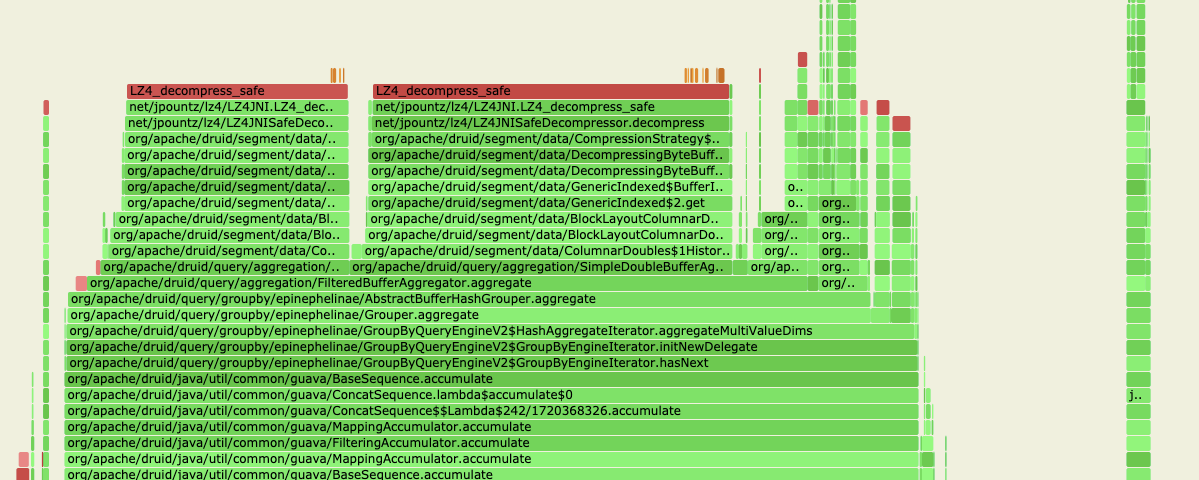[Performance] will a decompressed bytebuffer cache help?
See original GitHub issueThe flame-graph sampled from our production cluster shows that a large portion of CPU time has spent on LZ4Decompression (probably 60%+ of all querying related methods), as shown in the following picture.

I wonder would a (probably on disk) LRUCache on de-compressed data help?
It seems it would not be hard to implement. A, say, BufferedGenericIndexd can be created with a generated UUID, and then we can use <uuid>-bufferNumber as the cache key.
But I’m not sure about the effectiveness. It does introduce extra cost of cache miss penalty, random disk IO, etc.
That’s why I would like to raise a discussion here and find out is it a feasible solution.
Thanks
Issue Analytics
- State:
- Created 4 years ago
- Comments:5 (5 by maintainers)
 Top Results From Across the Web
Top Results From Across the Web
[Performance] will a decompressed bytebuffer cache help?
It seems it would not be hard to implement. A, say, BufferedGenericIndexd can be created with a generated UUID, and then we can...
Read more >Case Study: Double performance in under 30 minutes
XPressStream – Reads a compressed byte stream and decompresses it on the fly using the XPress decompression algorithm. The general algorithm is ...
Read more >Java ByteBuffer performance issue - Stack Overflow
While processing multiple gigabyte files I noticed something odd: it seems that reading from a file using a filechannel into a re-used ......
Read more >DynamoDB Best Practices - Packt Hub
We are going to talk about DynamoDB implementation best practices, which will help you improve the performance while reducing the operation ...
Read more >Understanding Apache Cassandra Memory Usage - Instaclustr
When this is full, Cassandra will allocate a ByteBuffer outside the cache, which can be a degradation of performance (since it has to...
Read more > Top Related Medium Post
Top Related Medium Post
No results found
 Top Related StackOverflow Question
Top Related StackOverflow Question
No results found
 Troubleshoot Live Code
Troubleshoot Live Code
Lightrun enables developers to add logs, metrics and snapshots to live code - no restarts or redeploys required.
Start Free Top Related Reddit Thread
Top Related Reddit Thread
No results found
 Top Related Hackernoon Post
Top Related Hackernoon Post
No results found
 Top Related Tweet
Top Related Tweet
No results found
 Top Related Dev.to Post
Top Related Dev.to Post
No results found
 Top Related Hashnode Post
Top Related Hashnode Post
No results found

An alternative to this would be to just leave the data uncompressed (which is supported at indexing time currently), then let the kernel manage the page cache on its own. That way we wouldn’t need to do special buffer handling.
Thanks guys. It seems I need more investigation and evidence before dive into implementation.